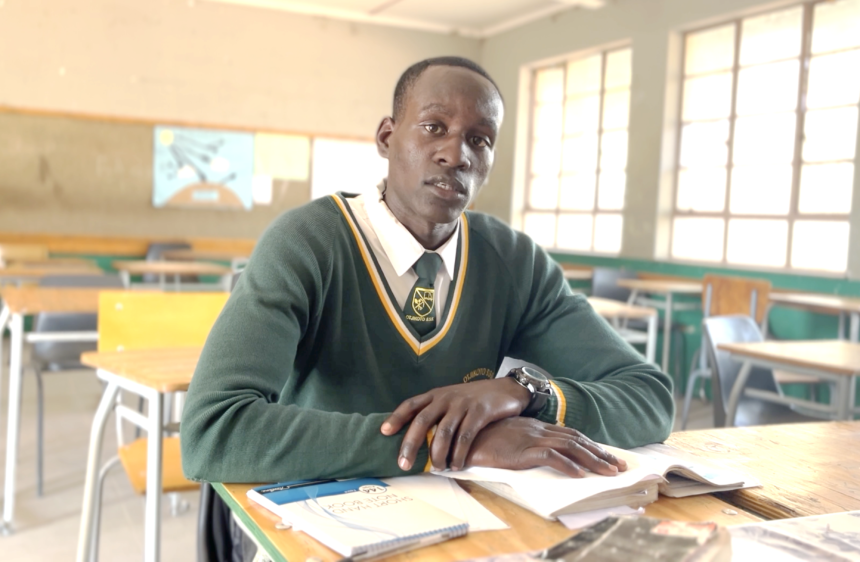Shona Ngava
Now in grade 10 at age 24, Paulus Paulus never gave in to societal pressure of giving up on his education when he started school at 15 years.
Currently enrolled at Oshikoto Senior Secondary School, the determined learner said life tends to be hard at times, but his determination to pursue education is the one thing that keeps him going daily.
“My age doesn’t matter. What matters is the books. I don’t care what people in my surroundings say about me. They may say bad words here and there, but I don’t care because I know what I want and my vision,” he shared on the negative perceptions around his age in comparison to his schoolmates.
He encouraged learners to stay in school, and secure a bright future for themselves.
He said learning is crucial, and his vision is to be educated so that he may contribute to a better Namibia.
“I grew up in Angola at my uncle’s farmland, and I was being forced to stay there, but I decided to come to Namibia. It was very hard for me to get into school, or find an opportunity like this,” he said in an interview at the information ministry’s Oshikoto office.
He added: “I decided to run away from Angola, and come start school in Namibia. I couldn’t even speak English, and I started getting help, which boosted my confidence, and made me not give up on my dream”.
He went on to say that seeing other learners going to school also motivated him, and he is over the moon to have reached that stage with his academics.
“I am determined and disciplined. One thing that people should consider when they are in school is that education is important. It doesn’t matter your age, but education is important, especially to us young people,” he said.
He stated that through education, one can get a good job, and he is saddened by young Namibians who leave school, stating that such decisions would not be beneficial to them in the future.
“I am trying so hard to keep myself in school, finish it, and have a bright future. I want to study hard to become a teacher. I want to show the young ones that they have an opportunity to be in school, and to learn,” he stated.
Education executive director Sanet Steenkamp told Youth Corner that she was filled with a great sense of hope when she came across Paulus’ story.
“One of our regional directors started school at the age of nine – and that just shows you that when children are held back in households and communities through culture or having to attend to cattle, especially the boy child, it really provides a situation where they create a backlog in schools,” she remarked.
She added: “In the case of Paulus, we are seeing true perseverance. We saw structured consistency. This gentleman is 24 years old and he is not ashamed, and takes on education with pride. That filled me with a deep sense of appreciation for him reaching out, and serving as a role model to others”.
She admitted there are 27-year-olds in grade 12, and they are allowed in classrooms if they blend in and take education seriously.
“We are open. Everybody can learn at any age, and it is usually with dialogue and open communication that if the teacher is aware, support is provided. We never had any case where somebody who is overage in a specific group or grade has been discriminated against, and that is something that is beautiful,” said the academic.
The official primary school-age entry is seven years by the start of the academic year, according to the Basic Education Act 3 of 2020.
“When we come across children who are 10 or nine years old, the regional director, through the office of the executive director, grants permission on grounds that additional learning support is provided to that learner,” she said.
Steenkamp added: “Because of the backlog and his willingness to learn, we would expect teachers in all the subjects to provide him (Paulus and others alike) with all the support he may need. Peer support is fantastic, and it’s something that should not be underestimated”.
* Shona Ngava is a media officer at MICT, Oshikoto region.
-psiririka@nepc.com.na


